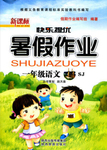题目内容
Do you know what really troubles me? For some reason, words with silent letters have always bothered me. For example, consider these words: know, design, island, school, wrist, naughty, and salmon. All of these words have at least one letter that is not typically pronounced, and these words are just a very small part of words with silent letters in them.
Some words are even worse, consider this word: colonel. Not only are some letters not pronounced, but letters that are not even there are pronounced.
Even foreign languages, especially French, are guilty of this needless complexity and confusion. I know there must be some main historical reasons why the words are spelled and pronounced the way they are, but that does not mean bad traditions must continue to survive. Especially if they are no longer logical.
Unfortunately, there is very little that anyone can do for it, because there’s no group of people who can change or have the right to change the English language for everyone. However, the only thing we can do is make changes in the way we talk and write in hopes that it catches on. For example, I pronounce the letter “l” in salmon on purpose to make people annoyed and to sound more different or complicated. I even pronounce colonel the correct or French way.
I can only hope these two minor changes to the English language make sense to you, and you will help to keep up these minor changes forever in your everyday life.
We can learn from the passage ________.
![]() A. colonel is pronounced
A. colonel is pronounced
B. salmon is pronounced
C. all the words with silent letters come from French
D. linguists will solve the problem of dumb letters
Which of the following is the main reason for silent letters?
A. French language. B. Historical reasons. C. Some linguists D. Bad traditions.
The underlined phrase “catches on” probably means “________”.
A. becomes popular B. gets across C. follows the fashion D. doesn’t fall behind
Which of the following is the best title for this passage?
A. Troubles in everyday life B. Traps in English words
C. Words with silent letters D. Necessary changes of languages
【小题1】B
【小题1】B
【小题1】A
【小题1】C
解析:
略

 新课标快乐提优暑假作业陕西旅游出版社系列答案
新课标快乐提优暑假作业陕西旅游出版社系列答案___ is the most useful invention?
|
A.Do you think which of these |
B.Which of these you know |
|
C.Which of these do you know |
D.You know which of these |
Do you know the stages every inventor must ________ before they can have their invention________ .
|
A.go through; approve |
B.go through; approved |
|
C.get through; approval |
D.look through; approved |